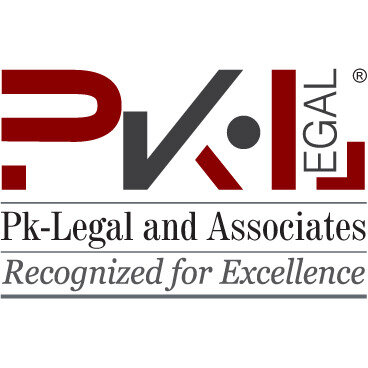Best Employer Lawyers in Rawalpindi
Share your needs with us, get contacted by law firms.
Free. Takes 2 min.
List of the best lawyers in Rawalpindi, Pakistan
About Employer Law in Rawalpindi, Pakistan
Employer law in Rawalpindi, Pakistan is a body of law that governs the rights and obligations between employers and their employees. It is designed to protect both parties in their working relationship and encompasses various statutes, including the Pakistan Employment Rights ordinance, Workmen's Compensation Act, and Industrial Relations Act. These laws regulate matters like employment contracts, termination of employment, working hours, wages, health and safety, and dispute resolution.
Why You May Need a Lawyer
You may require legal assistance if you are facing unfair treatment at work, wrongful dismissal, or discrimination. Employers may also need lawyers for guidance on following labor laws, drafting employment contracts, or handling disputes with employees. Issues regarding pensions, benefits, workplace safety, and restructuring can also necessitate legal advice and representation.
Local Laws Overview
The key aspects of local laws relevant to employer-employee relations in Rawalpindi, Pakistan include the employment contract, which must comply with national labor laws and local regulations; wage standards, including minimum wage and timely payment; working hours and overtime regulations; and rules about providing a safe and healthy work environment. Employers must follow the procedures for employment termination, which include notice periods and severance pay. There are also laws governing the formation of trade unions and collective bargaining agreements.
Frequently Asked Questions
What minimum rights are employees entitled to in Rawalpindi?
Employees in Rawalpindi are entitled to rights such as a minimum wage, regulated working hours, rest and meal breaks, paid annual and sick leave, and workplace safety measures.
Can employers terminate an employee without any notice?
Termination without notice is generally not permitted unless in cases of gross misconduct. In other situations, employers are required to provide a notice period or pay in lieu of notice.
What is considered wrongful termination?
Wrongful termination includes firing an employee on discriminatory grounds, without following the due process of law, breach of contract, or without valid reason when an employee has a guaranteed period of employment.
Are employers required to provide severance pay?
Severance pay is often mandated in cases of redundancy or when employment is terminated without due cause, subject to the conditions mentioned in the employment contract or applicable laws.
How are disputes between employers and employees resolved?
Disputes can be resolved through internal grievance procedures, mediation, arbitration, or through labor courts, depending on the nature of the dispute and any existing dispute resolution clauses in the contract.
What regulations exist for health and safety in the workplace?
Employers are obligated to adhere to the regulations that ensure the safety, health, and welfare of employees at work. These may include providing protective equipment and training on health and safety protocols.
Can an employee sue an employer?
Yes, an employee can sue an employer if they believe their rights have been violated or if they've suffered from discrimination, harassment, wrongful termination, or unpaid wages.
What are the laws regarding working hours and overtime?
Employment laws regulate working hours, which typically should not exceed 48 hours per week, and require proper compensation for overtime at a premium rate as determined by the law or the contract.
How can an employer ensure compliance with employment laws?
Employers should regularly consult with legal professionals, remain updated with any changes in labor laws, and implement internal policies that adhere strictly to labor regulations.
Are there any exceptions to labor laws for small businesses or startups?
While certain labor laws apply universally in Pakistan, there may be exceptions or variations in the application of some laws depending on the nature and size of the business. Legal consultation is suggested to comprehend these nuances.
Additional Resources
For additional information and assistance, the Ministry of Labour and Manpower and the Employees Old-Age Benefits Institution (EOBI) are key governmental bodies you can approach. The Pakistan Workers Federation (PWF) and the Employers Federation of Pakistan (EFP) might also offer support and resources.
Next Steps
If you need legal assistance with an employer-related matter in Rawalpindi, your first step should be to gather all relevant documentation. Next, you may want to seek out recommendations for reputable labor and employment lawyers or law firms with a strong track record in this area. Scheduling a consultation to discuss your particular situation will help you understand your rights and the best course of legal action.
Lawzana helps you find the best lawyers and law firms in Rawalpindi through a curated and pre-screened list of qualified legal professionals. Our platform offers rankings and detailed profiles of attorneys and law firms, allowing you to compare based on practice areas, including Employer, experience, and client feedback.
Each profile includes a description of the firm's areas of practice, client reviews, team members and partners, year of establishment, spoken languages, office locations, contact information, social media presence, and any published articles or resources. Most firms on our platform speak English and are experienced in both local and international legal matters.
Get a quote from top-rated law firms in Rawalpindi, Pakistan — quickly, securely, and without unnecessary hassle.
Disclaimer:
The information provided on this page is for general informational purposes only and does not constitute legal advice. While we strive to ensure the accuracy and relevance of the content, legal information may change over time, and interpretations of the law can vary. You should always consult with a qualified legal professional for advice specific to your situation.
We disclaim all liability for actions taken or not taken based on the content of this page. If you believe any information is incorrect or outdated, please contact us, and we will review and update it where appropriate.












